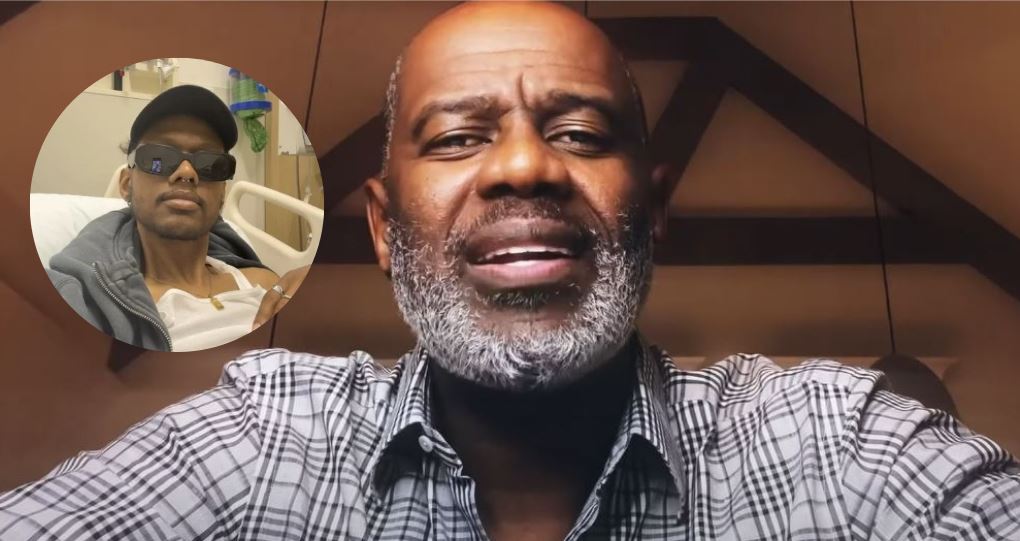
The passing of Cole Nikolas “Niko” McKnight, son of renowned R&B singer Brian McKnight, has caused a stir in the music community in recent days. Niko reportedly fought cancer for two years before passing away at the age of thirty-two. But instead of a private remembrance, the McKnight family experienced a startlingly visible split.
Brian’s brother Claude McKnight made the announcement via a touching but contentious TikTok, praising Niko’s artistic spirit and affectionate disposition. Brian, however, did not appreciate this gesture and referred to it as “tasteless and self-aggrandizing,” accusing Claude of taking advantage of personal sorrow. In an emotionally charged Instagram video, he expressed his reaction, saying, “This has turned into a circus.”
Brian McKnight’s Late Son Niko – Family, Career, and Public Rift
| Attribute | Details |
|---|---|
| Full Name | Cole Nikolas “Niko” McKnight |
| Age at Death | 32 years old |
| Date of Death | May 29, 2025 |
| Cause of Death | Cancer (diagnosed approximately 2 years earlier) |
| Parents | Brian McKnight (father), Julie McKnight (mother) |
| Occupation | Guitarist, Photographer, Creative Artist |
| Public Status | Estranged from father Brian McKnight |
| Family Controversy | Public dispute involving Brian’s brother Claude McKnight |
| Memorial Event | Private service reportedly held in Maui |
| Media Source | People Magazine, Instagram posts, TikTok announcement |
Brian’s public response heightened the discussion and highlighted a rift that had evidently developed over years. He stressed that he had tried to provide Niko with medical assistance, specialized care, and emotional support despite their distance from one another. Brian claims that Niko and his mother, Julie, both rejected these attempts. He presented himself as a father attempting to assist from a distance—only to be turned down—using deft wording and solemn expression.
He explained in this Instagram post that his family had quietly remembered Niko by hosting a private memorial service in Maui. Speaking with controlled pain, he defended his actions, emphasizing that he was under no duty to show his grief on social media just to demonstrate it. Despite being emotionally grounded, the tone was remarkably firm, particularly in his message to his brother, “May God have mercy on your soul.”
This was a startling turn of events for longtime Brian McKnight fans. Many remember him singing heartfelt ballads about love, healing, and fatherhood to audiences. However, that image has taken a hit in recent years. His previous comments regarding Niko—once described as a “product of sin”—continue to be shared online, attracting criticism and escalating division. The idea of an irreversible father-son divide has been exacerbated by these extremely hurtful and harmful remarks.
Larger conversations concerning familial estrangement and the limits of public mourning have been prompted by the passing of Niko, who was described as an exceptionally kind and creative individual. The story of the McKnight family feels incredibly personal yet unavoidably exposed in the context of celebrity culture, where every tragedy appears to be filtered through algorithms and fan commentary.
Both critics and fans are still split. Some contend that Brian’s grieving process is legitimate and even admirably private. Others consider Brian’s reprimand to be excessively harsh and possibly the result of long-standing animosity, while others see Claude’s message as genuine. It is particularly evident how public sympathy differs from firsthand experience.
The noise of family strife shouldn’t overpower Niko’s artistic contributions, which include his photography, guitar playing, and quiet inventiveness. Those who knew him recalled him as compassionate, creative, and incredibly human. There is a void left by his absence that cannot be quantified by press reports or family arguments.
The larger lesson is both painful and enlightening: the heartbreak of loss, silence, and distance affects even famous families. Brian’s story might serve as a warning to some. Others use it as a reminder that the burden of everything unsaid is often carried by those who are grieving.
